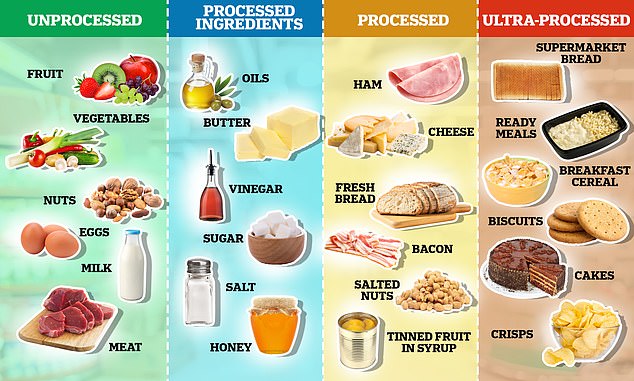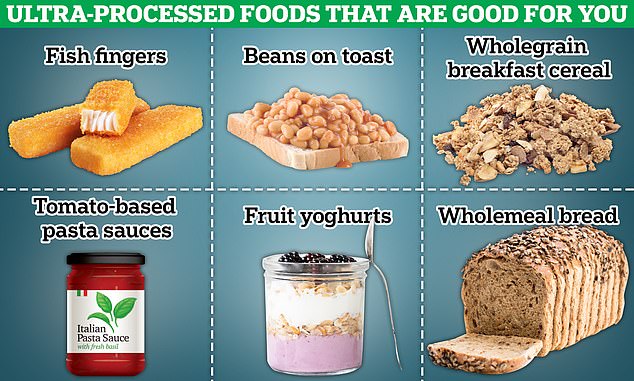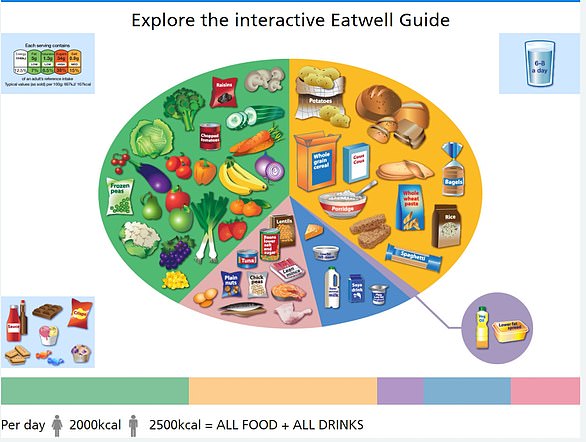Diets high in ultra-processed foods can be harmful to all parts of the body, according to a major research review.
Eating a lot of foods, such as ready meals, sugary cereals and mass-produced bread, is linked to an increased risk of 32 health problems, including cancer, type 2 diabetes and mental health disorders.
Often high in fat, salt and sugar and low in vitamins and fibre, researchers found “compelling” evidence that higher consumption was associated with a 50 per cent increased risk of dying from a heart attack or stroke.
In the largest analysis of evidence to date involving 10 million people, researchers found that those who ate the most had a 40 to 66 percent increased risk of dying from heart disease.
They were also significantly more likely to be diagnosed with obesity, lung conditions and sleep problems.
Your browser does not support iframes.
Comparing it to tobacco, they said “public policies and actions are essential” to curb consumption and called on public health officials to urgently develop guidelines and “best practices” for ultra-processed foods.
In a linked editorial, they suggest that foods be clearly labeled when they are “ultra-processed.”
UPFs refer to items that contain ingredients that people would not normally add when cooking homemade food.
These additions can include chemicals, dyes, sweeteners and preservatives that extend shelf life.
Restrictions should be imposed on advertising and sales “prohibited in or near schools and hospitals,” they say.
Governments should adopt national dietary guidelines that recommend varieties of minimally processed foods, they say, while taking steps to make freshly prepared meals cheaper and more accessible to everyone.
The UK is the worst country in Europe for ultra-processed food consumption and is estimated to account for 57 per cent of the national diet.
They are believed to be a key driver of obesity, which costs the NHS around £6.5 billion a year.
They often contain colorings, emulsifiers, flavors and other additives, and typically undergo multiple industrial processes that research shows break down the physical structure of foods, making them faster to absorb.
This, in turn, increases blood sugar, reduces satiety, and damages the microbiome, the community of “friendly” bacteria that live inside us and that we depend on for good health.
Food additives such as non-nutritive sweeteners, modified starches, gums, and emulsifiers also appear to affect the microbiome, gut inflammation levels, and metabolic responses to food, which may also increase the risk of heart attack and stroke.
An overview by academics in Australia analyzed 14 review articles published in the last three years that associated consumption with poor health outcomes.
Evidence was rated as convincing, highly suggestive, suggestive, weak, or no evidence.

The Nova system, developed by scientists in Brazil more than a decade ago, divides foods into four groups based on the amount of processing they have gone through. Unprocessed foods include fruits, vegetables, nuts, eggs, and meat. Processed culinary ingredients, which are not typically eaten alone, include oils, butter, sugar, and salt.


Food experts say some UPF can be “part of a healthy diet.” Baked beans, fish fingers and whole wheat bread are sufficient, according to the British Nutrition Foundation (BNF). Tomato-based pasta sauces, whole grain breakfast cereals and fruit yoghurts are also “healthier processed foods”, the charity claims.
There was compelling evidence that higher intake was linked to a 50 percent higher risk of death from cardiovascular disease, a 12 percent higher risk of type 2 diabetes, and a 48-53 percent higher risk of developing anxiety.
There was “highly suggestive” evidence that eating more ultra-processed foods can increase the chances of dying from any cause by a fifth, according to findings published in the BMJ.
This was also the case for obesity, type 2 diabetes, sleep problems and death from heart disease, which showed a 40 to 66 percent higher risk.
Researchers at Deakin University, Australia, also found a 22 percent increased risk of developing depression and a 21 percent increased risk of death from any cause.
They said the evidence between UPF intake and asthma, gastrointestinal health, some cancers, and intermediate cardiometabolic risk factors remains limited.
In an accompanying editorial, academics from Sao Paulo, Brazil, said: “Overall, the authors found that diets rich in ultra-processed foods may be harmful to most, perhaps all, body systems.”
They wrote: ‘There is no reason to believe that humans can fully adapt to these products.
“The body can react to them as useless or harmful, so its systems can deteriorate or become damaged, depending on their vulnerability and the amount of ultra-processed foods consumed.”


UPFs refer to items that contain ingredients that people would not normally add when cooking homemade food. These additions can include chemicals, dyes, sweeteners and preservatives that extend shelf life.
They added: “The time has come for United Nations agencies, with member states, to develop and implement a framework convention on ultra-processed foods analogous to the framework on tobacco.”
They said it is also vital to conduct more research to determine the different mechanisms by which these foods impact health, but should not delay policymakers from making urgent changes.
The scientists said the study had limitations, including inconsistent data collection methods in the original research.
Gunter Kuhnle, Professor of Nutrition and Food Science at the University of Reading, commented on the findings: “Many studies also show that people who consume a lot of ultra-processed foods also have an unhealthy lifestyle and therefore , a higher risk of disease.”
“Although many studies try to adjust for this, it is virtually impossible to do so completely.”
A government spokesperson said: “We are taking strong action to encourage healthier food choices and tackle obesity, recognizing that it is the second leading cause of cancer and costs the NHS around £6.5 billion a year. , while respecting the importance of individual choice.
‘We have introduced calorie labeling on foods sold in restaurants, cafes and takeaways to enable people to make informed personal decisions about their lifestyle, and thanks to our salt reduction programme, the amount of salt in foods food has decreased by around 20 percent.
“Prepackaged foods should include a variety of information to help shoppers, including a list of ingredients and nutritional facts.”

